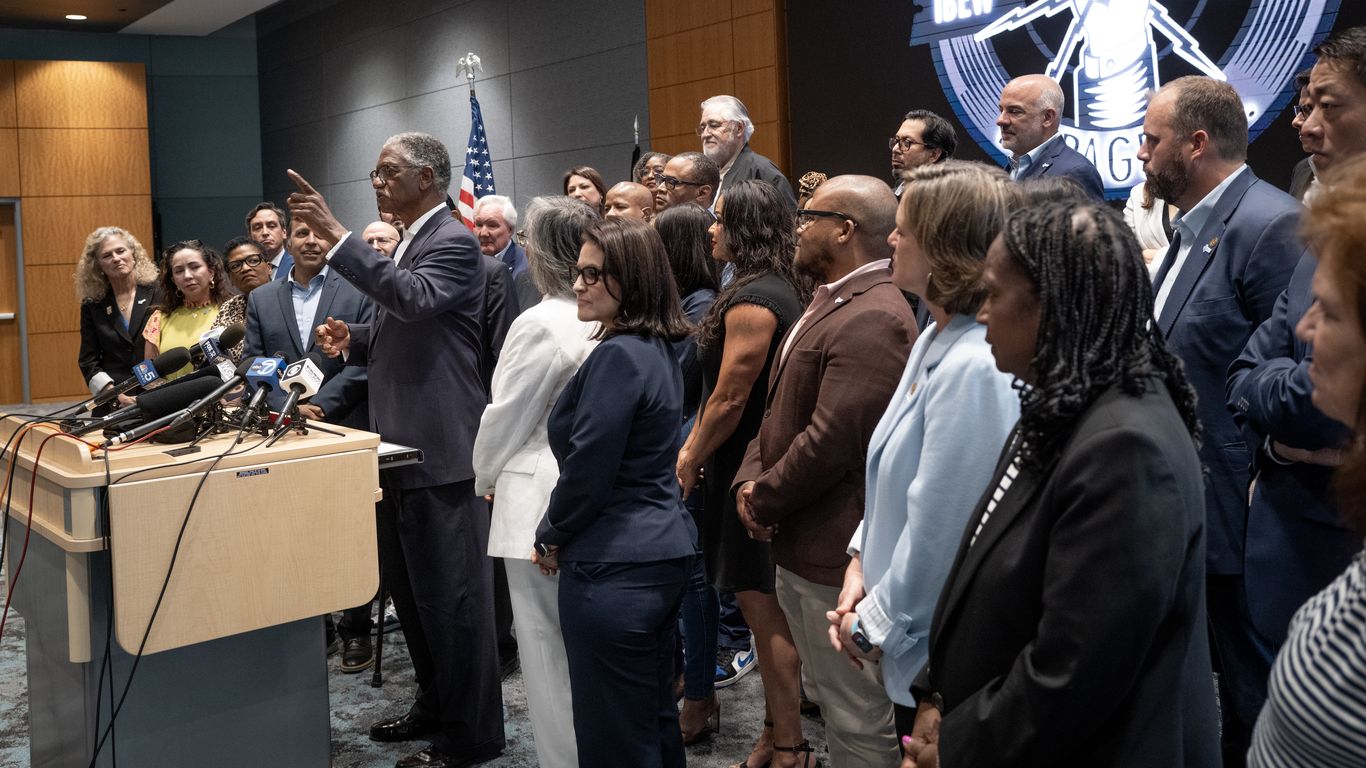The Indictment of Former FBI Director James Comey: Fallout and Implications

Introduction
The recent indictment of former FBI Director James Comey by a federal grand jury in Alexandria has caused a stir in the political world. Comey has been charged with one count of making false statements and one count of obstruction of Congress. Despite denying any wrongdoing, the charges have raised questions about his actions during his time as the head of the FBI.
Key Details
The one count of making false statements stems from a closed-door testimony before Congress in 2018. Comey was questioned about the FBI's handling of the investigation into Hillary Clinton's use of a private email server. The indictment alleges that Comey knowingly made false statements during this testimony. The second count of obstruction of Congress is based on Comey's refusal to comply with a congressional subpoena for documents related to the investigation.
Impact
The indictment of Comey has reignited the debate about the role of the FBI in the 2016 election and the actions of its former director. It also brings into question the integrity and credibility of the FBI and its leaders. With the upcoming 2020 election, this indictment could have significant implications for both the political landscape and the justice system. The outcome of this case will surely be closely watched by both sides of the political spectrum.
About the People Mentioned
James Comey
James Brien Comey Jr. (born December 14, 1960) is an American lawyer who served as the seventh Director of the Federal Bureau of Investigation (FBI) from September 2013 until his dismissal in May 2017. Before leading the FBI, Comey held prominent roles in the U.S. Department of Justice, including U.S. Attorney for the Southern District of New York (2002–2003) and Deputy Attorney General (2003–2005), the latter being the second-highest position in the DOJ. After leaving government service in 2005, he worked as general counsel for Lockheed Martin and Bridgewater Associates, and was a scholar at Columbia Law School[1][3][4]. Appointed by President Barack Obama, Comey’s tenure as FBI director was marked by high-profile investigations. He oversaw the inquiry into Hillary Clinton’s use of a private email server while Secretary of State. In July 2016, he publicly criticized Clinton’s judgment but cleared her of criminal charges. However, shortly before the 2016 presidential election, Comey controversially announced the reopening of the investigation based on new emails, which many analysts believe influenced the election outcome that favored Donald Trump[1][2][5][9]. Under President Trump’s administration, Comey confirmed the FBI’s investigation into possible Russian interference and contacts with the Trump campaign. This period included Comey’s public refutation of Trump’s unsubstantiated wiretapping claims. On May 9, 2017, President Trump abruptly fired Comey, a decision that drew extensive media attention and political debate[2][5]. Most recently, in September 2025, Comey was indicted by a federal grand jury on charges of making false statements and obstruction[9]. His career remains significant in discussions of U.S. law enforcement and political history.
About the Organizations Mentioned
FBI
The Federal Bureau of Investigation (FBI) is a premier law enforcement agency in the United States, renowned for its role in protecting the nation from domestic and international threats. Founded on July 26, 1908, as the Bureau of Investigation, it was initially tasked with addressing land fraud and corporate malfeasance under President Theodore Roosevelt[1][2]. Over time, its mandate expanded significantly, particularly with the passage of the Mann Act in 1910, which allowed federal jurisdiction over certain moral offenses[1][4]. ### History and Evolution The FBI underwent significant transformation under J. Edgar Hoover, who became its director in 1924. Hoover implemented strict hiring standards and enhanced operational capabilities, transforming the agency into a robust investigative force[1][4]. The FBI's name was officially changed to the Federal Bureau of Investigation in 1935[5][6]. Throughout its history, the FBI has faced challenges, including concerns about potential abuses of power, but it has consistently demonstrated its value in national security and law enforcement[3][4]. ### Key Achievements The FBI has been instrumental in combating various crimes, including white-collar offenses, civil rights violations, and national security threats. Notable achievements include its role in enforcing the Espionage Act during World War I and its investigations into organized crime throughout the 20th century[2][4]. ### Current Status Today, the FBI is a sophisticated agency with over 37,100 employees, including special agents and professionals in various fields such as intelligence analysis and cybersecurity[5]. It operates in 55 field offices across the U.S. and has an international presence in 81 nations[5]. The FBI continues to evolve, addressing emerging threats like cybercrime and terrorism while maintaining its commitment to justice and integrity. ### Notable Aspects The FBI is known for its rigorous training programs at the FBI Academy in Quantico, Virginia, and its advanced forensic capabilities at the FBI Laboratory. Its work in business and technology includes



















